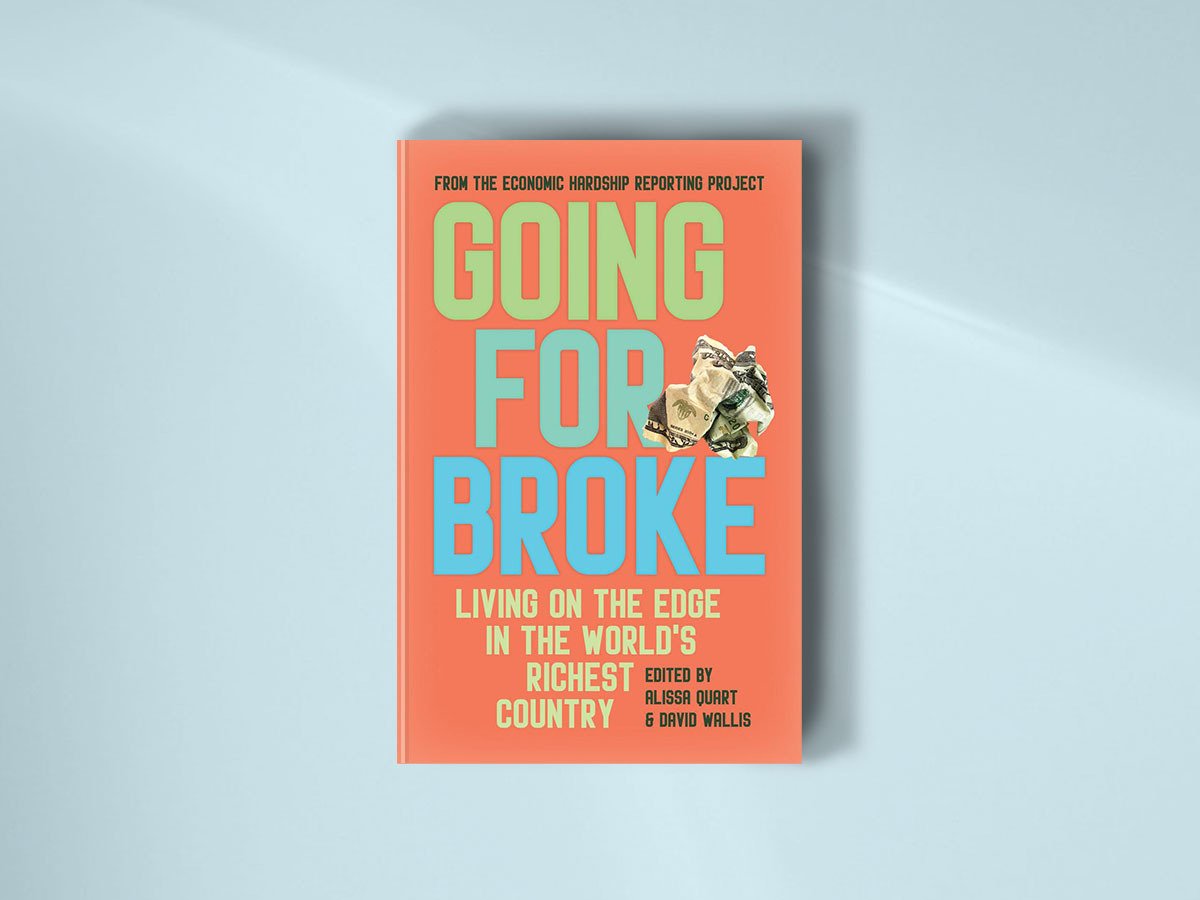
The next textual content is excerpted from Going for Broke: Dwelling on the Edge within the World’s Richest Nation, edited by Alissa Quart and David Wallis, printed in collaboration with the Financial Hardship Reporting Mission by Haymarket Books, copyright © 2023. Reprinted with permission.
Once I was younger everybody was “center class.” America, we have been advised till the aughts, was a giant undifferentiated mass. Some poor individuals on the backside, certain, and some wealthy individuals on the prime, however the delusion was that most individuals lived in between. It was an thought so fanciful that, because the comic George Carlin stated of the American dream, you needed to be asleep to imagine it.
Class will not be solely about how a lot cash you may have within the financial institution.
The 2008 monetary disaster woke the nation as much as the truth that the economic system’s rewards weren’t, in actual fact, distributed on a curve. Or, extra precisely, it alerted elites to this reality (little doubt a number of individuals knew full nicely they have been poor). In a single day, inequality turned a matter of pressing nationwide concern. As hundreds of thousands of individuals confronted foreclosures and misplaced their jobs, it was clear the center—or what was left of it—was shrinking and being squeezed. Occupy Wall Road, by way of its rhetoric of the 99 % and the 1 %, popularized a category framework that shifted the phrases of the political debate, even when the phrases the motion supplied have been nonetheless a bit fuzzy. The 99 %, in any case, features a complete lot of individuals, uniting them solely by the very fact [that] they aren’t the megarich.
The notion of sophistication, although extra generally mentioned in earlier eras, has lengthy been awash in confusion. Class and its assorted classes might be instruments of clarification or of obfuscation, relying on who’s utilizing them and why. Class will not be solely about how a lot cash you may have within the financial institution. It pertains to the function you play in society, particularly the place you match into the economic system’s techniques of finance and manufacturing.
Join our free newsletters
Subscribe to NPQ’s newsletters to have our prime tales delivered on to your inbox.
By signing up, you conform to our privateness coverage and phrases of use, and to obtain messages from NPQ and our companions.
…
Abolishing class requires constructing the ability to problem and remodel capitalism.[T]he answer to capitalism’s incessant shaming and stigmatization of poor individuals is to not be nicer to them or create circumstances of inclusion (even when being good and inclusive are higher than the alternate options). That is how class differs from different types of identification, like race, gender, sexuality, or incapacity, at the same time as class intersects with these classes in vital methods. As Stuart Corridor rightly noticed, “Race is the modality during which class is lived.”
The distinction, nevertheless, is that not like racism or sexism, the issue of sophistication will not be an issue of classism—of discrimination in opposition to or exclusion of individuals based mostly on their wealth or earnings. Somewhat, the issue is class exploitation and the truth that these divisions exist in any respect. Thus, the answer is to not change society’s attitudes in regards to the poor, however as a substitute to create a society during which poor individuals now not exist as a result of everybody is sufficiently and equally supplied for.
Abolishing class requires constructing the ability to problem and remodel capitalism, a course of that requires class consciousness—an consciousness amongst lots of individuals of the very fact of sophistication exploitation and a want to problem it. This revolutionary consciousness is exactly what the parable of the center class helped suppress. However at the same time as that delusion has misplaced a few of its energy, new mystifications have emerged to take its place. Within the palms of the wealthy, racist reactionaries who more and more place themselves as opponents of a shadowy liberal “elite,” class turns into kitsch. When invoked by the appropriate, the phrase “working class”—at all times imagined as white, male, and cisgender—turns into yet one more instrument of ruling-class domination.
[What we need] are tales that may construct class solidarity, slightly than lulling us into passivity…[and] awaken us to the potential of our collective energy.